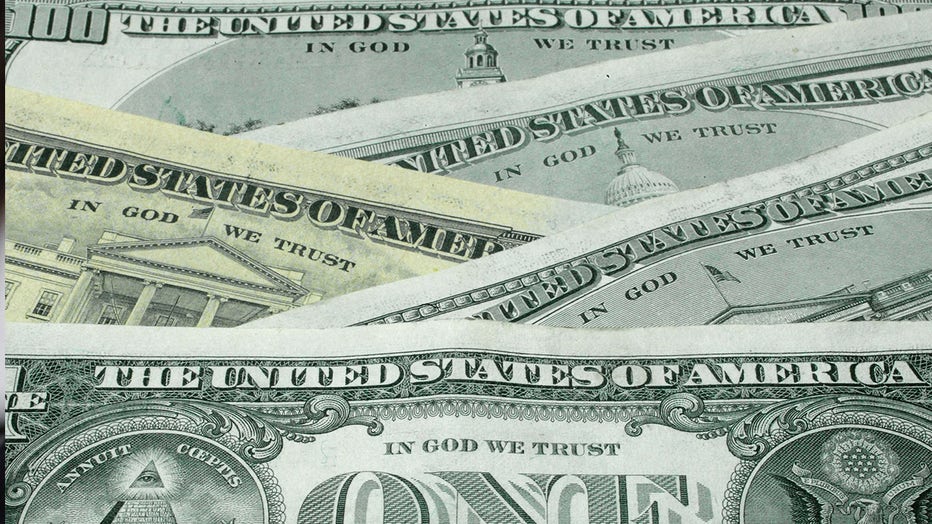More than 40% of Americans have no clue what a 401k is, survey finds
A new survey reveals that nearly half of Americans don’t know what a 401k is, highlighting a lack of confidence among respondents regarding their financial literacy.
The poll, commissioned by Beyond Finance, surveyed 2,000 people in the U.S. in February, evenly split by generations, to examine Americans’ financial literacy, their commitment to adopting healthy money habits, and their feelings regarding their bank accounts and financial futures.
The survey found that 43% of the respondents did not know what a 401k was. Meanwhile, only two in five respondents (39%) said they considered themselves more financially literate than the average person.
In addition, only 30% believed they could win a game of personal finance trivia, and more than a third (35%) confessed to not knowing the term "interest" in a financial context.

FILE: U.S. bills (Credit: Alex Wong/Getty Images)
Four in 10 Americans admitted they procrastinate when implementing healthy financial habits. Gen Z was the most likely generation to make financial improvements, while millennials were the least likely to make changes to improve their finances.
The top reasons cited for postponing personal finance tasks included stress (25%), feeling their financial health was already poor and couldn’t get any worse (16%) and forgetfulness (13%).
The study also reveals that Americans typically check their banking app twice daily. Yet, exactly half of respondents say they feel nervous when opening their banking portal, with Gen Z feeling most uncomfortable (65%) and baby boomers feeling the most calm (26%).
"Unfortunately, avoiding looking at your finances and making healthy changes is incredibly common," Erika Rasure, a chief financial wellness advisor of Beyond Finance, said in a statement.
"Some people tend to neglect taking stock of their financial situation, and others can become nervously consumed by it. There’s a middle ground to take when improving your financial health – learn healthy money habits, pay attention and make small, achievable adjustments to your spending and habits."
RELATED: 6 tips to save $100 a week and put it toward savings
Regarding budgeting habits, eight in ten respondents try to hold themselves accountable to a monthly budget, with millennials and baby boomers tying for the best-laid financial plans (81%).
This survey’s release comes as food prices at the grocery store are rising, interest rates are increasing and inflation remains high. Most American households are facing tough decisions and must re-prioritize spending.
The future of retirement also continues to be a topic of conversation across the country. A survey from the National Council on Aging found that most older Americans lack the resources that would let them deal with "financial shocks" that might come up in their retirement. 80% of households with older adults struggle with finances or are at risk of dealing with economic insecurity as they age.

